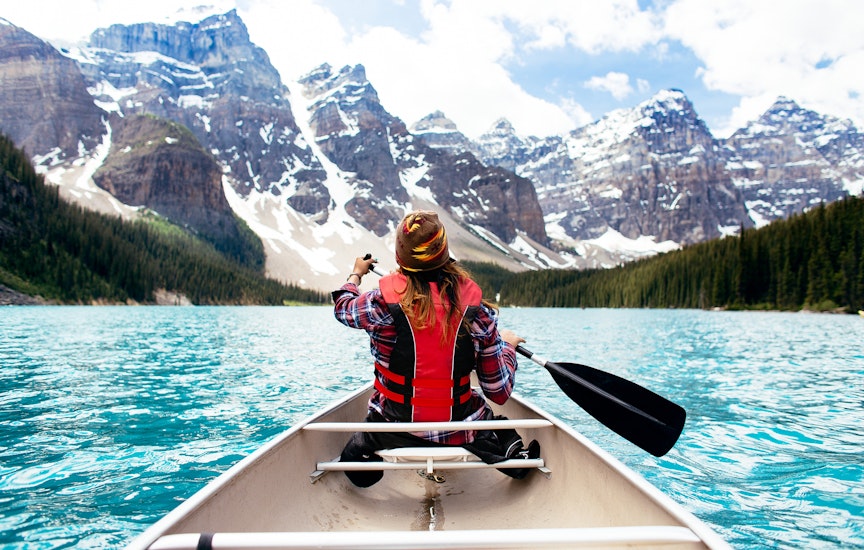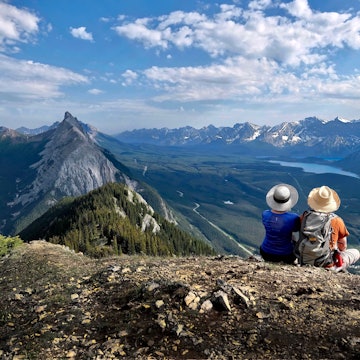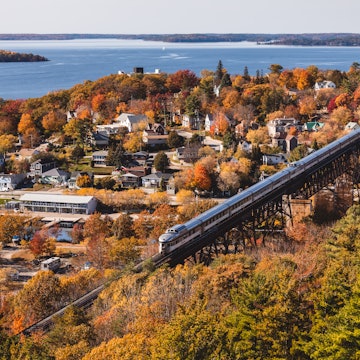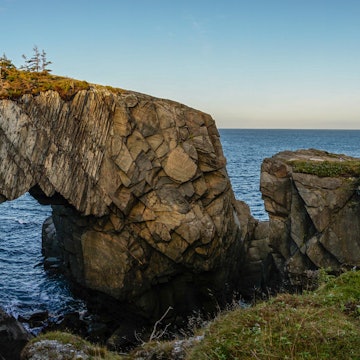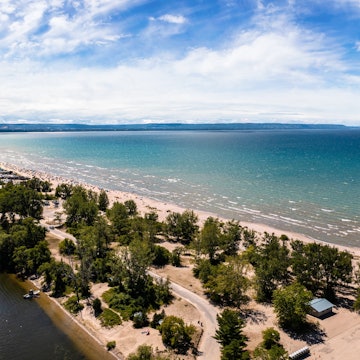

Banff and Jasper National Parks have several rustic backcountry lodges surrounded by unparalleled scenery © Gregor Clark / Lonely Planet
Banff and Jasper National Parks present a vision of untamed nature unparalleled on the North American continent.
Grizzlies and wolves rule the roost, and intense thunderstorms explode out of nowhere, meaning a comfortable night’s sleep doesn’t always come easy – but the parks’ historic backcountry lodges offer a comfortable, convivial refuge for hikers and skiers.
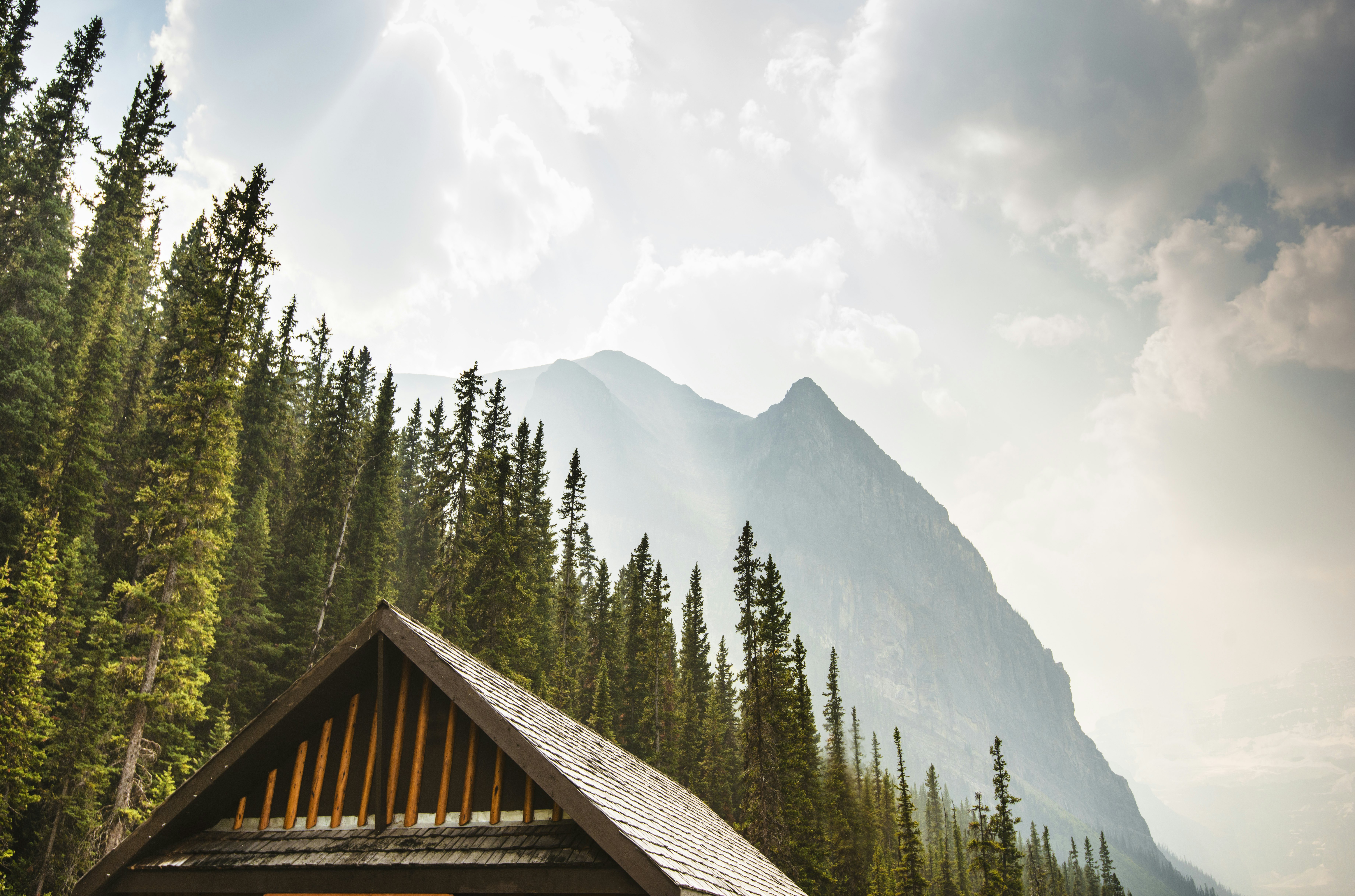
Each lodge has its own unique setting, hosts and history, but all have simple amenities, minimal (or no) electricity and running water, and welcoming common spaces where travelers can gather to read, play cards or recount the day’s adventures. Advance bookings are key – prices may seem steep, but factor in the included home-cooked meals and freedom from setting up camp or worrying about weather and wildlife, and the cost suddenly becomes worth it.
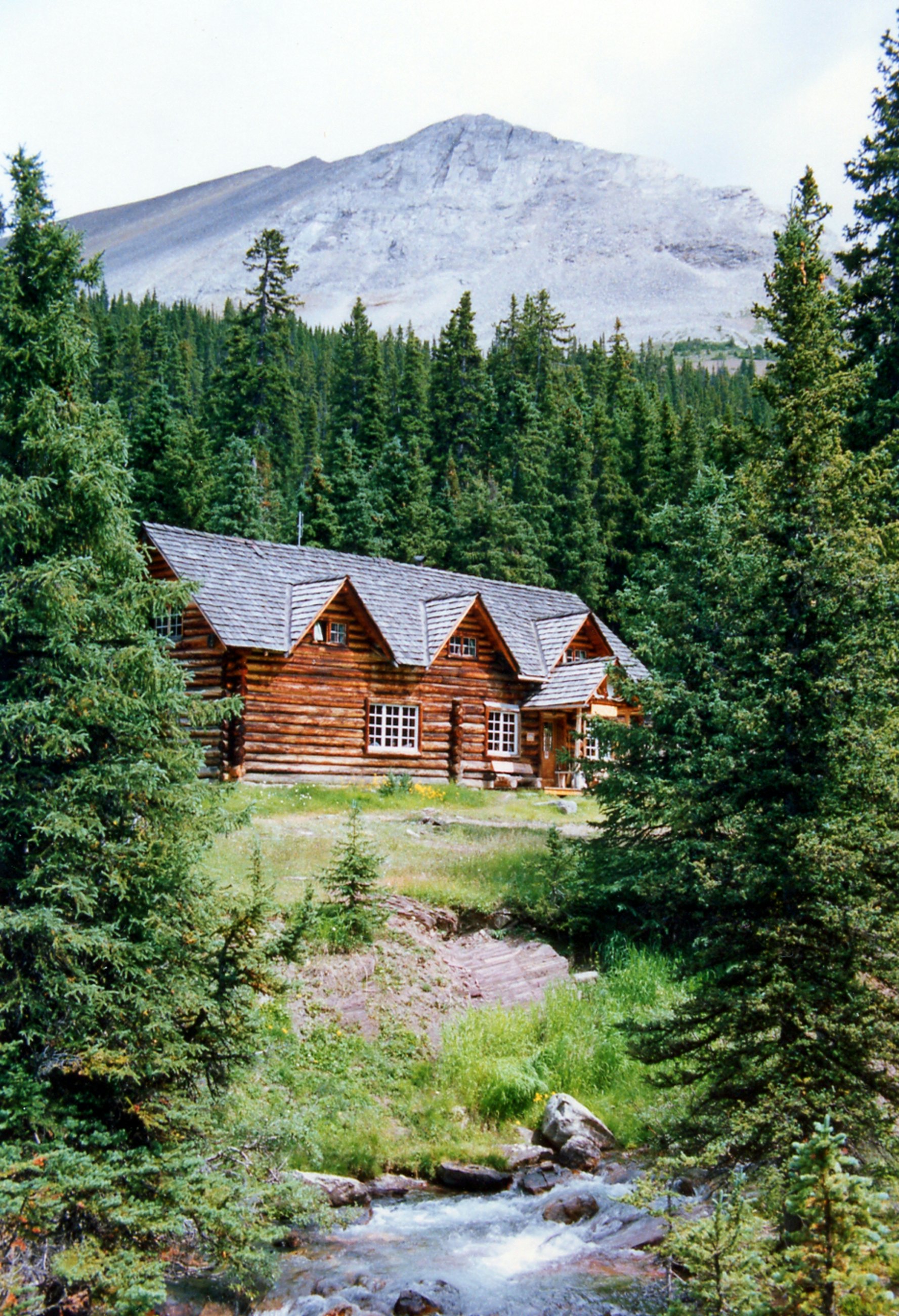
Skoki Lodge
Moose antlers frame the door and fresh-baked cake greets you at Skoki Lodge, a National Historic Site log cabin built in 1932 for Banff’s backcountry skiers. It’s hard to overstate the magic of arriving in the woodsy paradise at teatime, after a 6.9-mile trek over the twin summits of Boulder Pass (7694 ft) and Deception Pass (8117 ft). Weary hikers (or skiers in winter) cross the threshold to discover a table spread with goodies hot from the oven, local cheeses and cold cuts, miniature teapots waiting to be filled and a cozy pine-clad common room buzzing with the conversation of fellow adventurers.
Amenity-wise, Skoki is just a notch above camping. There’s no electricity or running water, and toilets are simple (though delightfully clean) outhouses. Upstairs, a half-dozen rooms with paper-thin walls straggle along a creaky-floored hallway, while the surrounding forest conceals three private cabins equipped with wood stoves. Despite the simplicity – or perhaps because of it – Skoki can feel like the coziest place on earth. Surrounding the lodge is one Banff’s most pristine wilderness valleys, full of poetic place names like the Wall of Jericho, Merlin Meadows and Zigadenus Lake.
Long-time hosts Ed and Vanessa, with an international crew of seasonal helpers, mix gourmet dining with 1930s rusticity. Beautifully presented dinners, served at a candlelit communal table, feature fresh veggies and locally sourced fish and meats: AAA Alberta beef, roasted kale and tri-color carrots, with beer and wine available. After dinner, as the kerosene lanterns glow and folks congregate around the wood stove, Ed chats with guests, happy to share the lodge’s history or pull out a map and recommend his favorite hikes.
Make it happen: skoki.com; 403-522-1347; per person incl meals rates from $300; 2 night min
Do I need a visa to visit Canada?

Shadow Lake Lodge
In a high, wild valley between Banff and Lake Louise, Shadow Lake Lodge has been welcoming weary travelers for nearly a century. Canadian Pacific Railway first built a log cabin in the 1920s as a way station for walkers and horseback riders. Today the Brewster family, which bought the original lodge from CPR in 1938, has expanded the complex to include a dozen attractive cabins fringing a mountain meadow.
Given Shadow Lake’s end-of-the-line setting, the creature comforts are a pleasant surprise. Big beds with wool blankets are illuminated by LED lights powered by solar and small-scale hydro, and the shared washhouse offers hot water. Arriving hikers are treated to afternoon tea, followed by a three-course dinner, with wine and beer available for purchase. In the evenings, the lodge’s spacious original cabin beckons guests for fireside conversation on comfy couches. Dawn brings views of 10,863-foot Mt Ball across the meadow.
Modern-day visitors to Shadow Lake still must walk or ride there. Most straightforward is the relatively flat 8-mile Redearth Trail from the Trans-Canada Highway, open to mountain bikers for the first 6.5 miles. Backcountry hiking purists can choose the more challenging approach routes over 7,546 ft Whistling Pass or Gibbon Pass.
Make it happen: shadowlakelodge.com; 403-762-0116; per person incl meals rates from $365; 2-night min; Jun-Sep & Jan-Mar

Tonquin Valley Backcountry Lodge
Straddling the continental divide 12.5 miles from the nearest paved road, framed by a magnificent castellated ridge known as the Ramparts, the Tonquin Valley is a world apart. The Tonquin Valley Backcountry Lodge sits on the wild fringes of Amethyst Lake, where Kable and Sara Kongsrud have played host to winter and summer guests for more than two decades. Jasper-born-and-raised Kable bought the lodge in 1992 after working as an equestrian outfitter in Jasper and the Yukon. Horses remain central to the lodge’s identity, with the Kongsruds offering multi-day horseback trips.
Hikers and skiers are also welcome, but beware … Tonquin is not for the faint-hearted. The valley is known for two things – mosquitoes and mud – and you’ll likely encounter plenty of both on the 14-mile summer slog over Maccarib Pass (7,251 ft); indeed the land surrounding Amethyst Lake is so boggy the lodge lays down cut-log ‘stepping stones’ to keep guests’ feet above water.
Still, this is a wilderness of rare grandeur and beauty. The remote outpost, with its network of boardwalks connecting a handful of simple woodstove-heated cabins, makes it easy to settle into Thoreau-like nature worship and retreat from the modern world. Guests have free use of the lodge’s rowboats, moored steps away on the lakeshore. In the main cabin with its wood stove blazing in the corner, bacon-and-egg breakfasts and dinners of fresh-caught trout or lasagna with salad are served family-style at a round table with a giant lazy Susan.
Make it happen: tonquinvalley.com; 780-852-3909; per person incl meals summer rates from $325, winter rates from $185; 2 night min; Jun - Sep & Feb - Mar

Shovel Pass Lodge
Setting is everything at Shovel Pass Lodge. Sheltered on a steep hillside from the icy shores of Curator Lake, the high country refuge features seven cabins with green metal roofs around a mountain glen, offering simple comforts in an otherwise unforgiving land. Amenities are rudimentary (propane heaters, BYO towel) and the décor decidedly simple (flowery bedspreads on basic log bunks) but nobody is complaining.
The lodge sits at the midpoint of Jasper’s world-renowned Skyline Trail, allowing hikers to navigate the entire 28.6-mile route in just two days, without lugging tents, sleeping bags or cooking equipment. Shovel Pass was named by early 20th-century Jasper adventurer Mary Schäffer, after having to dig through the snow using shovels improvised from tree branches. These days, weather on the Skyline Trail remains fickle; thigh-deep snow can slow hikers’ progress even in July – but that’s all part of the adventure.
There’s no more comfortable way to wake up than to receive a thermos of hot water on your doorstep at 7:30 am and a home-cooked breakfast to fuel the morning’s punishing climb up the windswept, rock-strewn saddle known as ‘the Notch’ (8235 ft). From here, the remaining 15 miles along high ridgelines back to Jasper is all downhill.
Make it happen: skylinetrail.com; 780-852-4215; per person incl meals rates from $255; Jun - Sep





